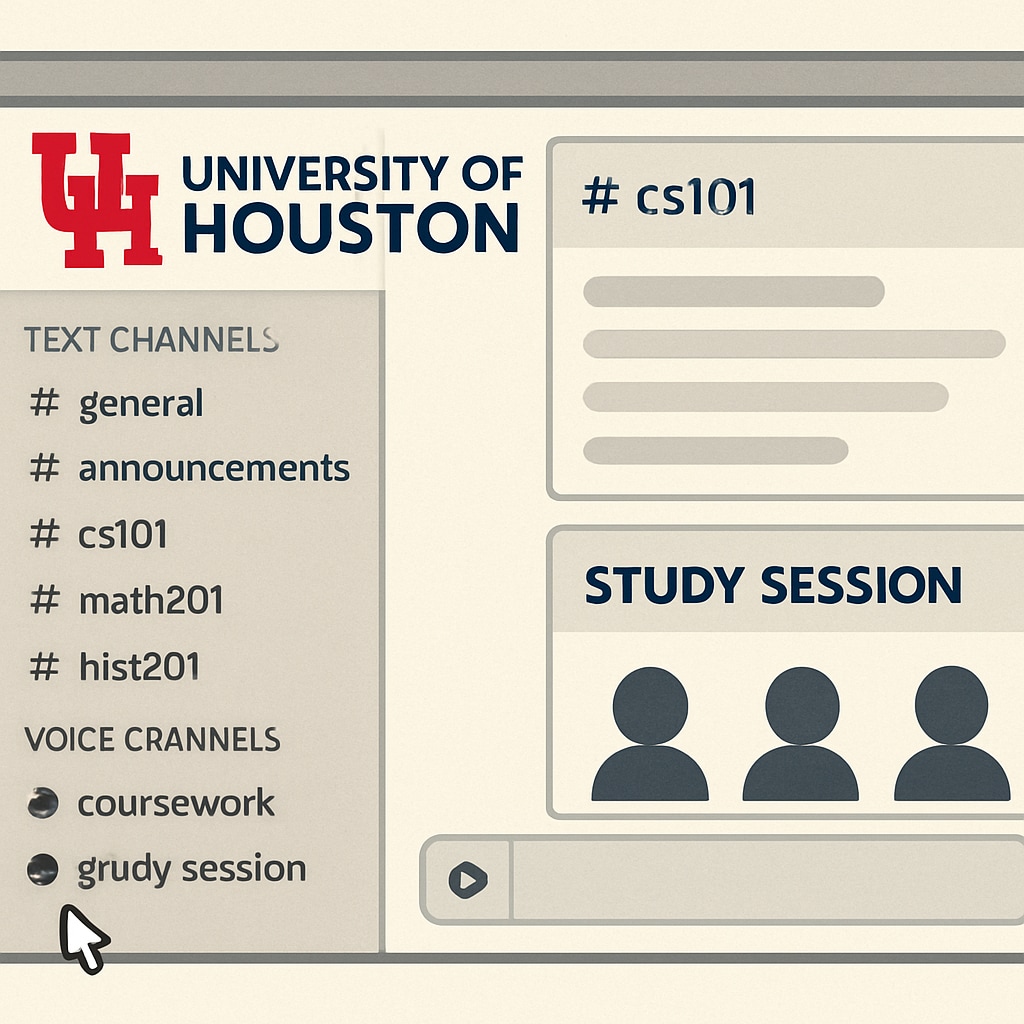In today’s competitive educational landscape, connecting with peers through study groups and online platforms like Discord has become an essential strategy for academic success. At the University of Houston, finding the right learning community can significantly enhance collaboration, foster resilience, and improve study habits. These resources not only help students thrive academically but also prepare them for teamwork in professional environments.
Why Study Groups Matter in Modern Education
Study groups are more than just collective learning environments; they are platforms where students can share knowledge, support each other, and build problem-solving skills. At the University of Houston, students often form groups to tackle challenging coursework, prepare for exams, and work on collaborative projects. These groups provide opportunities to discuss diverse perspectives, clarify doubts, and divide responsibilities effectively. As a result, participants often report better understanding and retention of topics.
For example, joining a study group for subjects like engineering or business management can help students navigate complex topics by leveraging the strengths of their peers. Additionally, study groups are excellent for building soft skills such as communication, leadership, and time management, which are highly valued in the professional world.

Using Online Platforms Like Discord to Connect
In addition to in-person study groups, online platforms such as Discord have become increasingly popular among University of Houston students. Discord is a versatile communication tool that allows users to create dedicated servers for specific classes or subjects. These servers often include channels for sharing notes, discussing assignments, and even hosting virtual study sessions.
Here are some tips for making the most of Discord study groups:
- Join university-specific servers: Many University of Houston students create or participate in Discord servers focused on their specific departments, courses, or extracurricular interests.
- Be an active participant: Engage in discussions, ask questions, and contribute helpful resources. Active involvement builds a stronger sense of community.
- Set up virtual study sessions: Use Discord’s voice or video channels to collaborate on projects or study together in real time.
By utilizing these digital resources, students can maintain their academic connections even when physical meetings are challenging, as was the case during the pandemic. This adaptability ensures that no one feels isolated in their educational journey.

How to Find Study Communities at the University of Houston
Finding the right study group or learning community at the University of Houston requires a proactive approach. Here are some practical steps to get started:
- Check university resources: Many departments and student organizations at the University of Houston host study groups or workshops. Visit the university website or contact your department for information.
- Join campus clubs: Academic and professional clubs often organize group study sessions. These are excellent opportunities to meet like-minded peers.
- Leverage online platforms: As mentioned, platforms like Discord and Facebook can help you connect with existing groups or create your own.
- Collaborate in class: Don’t hesitate to network with classmates and propose forming a study group. Most students are open to the idea, especially for challenging courses.
By taking these steps, students can quickly integrate into the University of Houston’s vibrant academic community and find peers who share their goals and aspirations.
Applying These Strategies to K12 Education
The benefits of learning communities are not limited to university students; they can also be applied effectively in K12 education. For younger students, study groups encourage teamwork, build confidence, and provide a supportive environment for learning. Teachers and parents can facilitate this by creating small, interest-based groups or introducing tools like Discord for supervised online collaboration.
By fostering these habits early, students develop critical life skills such as communication, problem-solving, and resilience. As a result, they are better prepared for the challenges of higher education and beyond.
In conclusion, whether you are a University of Houston student or a K12 educator, building and participating in learning communities is a powerful way to enhance academic growth. By leveraging resources like study groups and online platforms, you can create an environment that promotes collaboration, innovation, and success.
Readability guidance: This article uses concise paragraphs, clear lists, and accessible language to ensure readability. Over 30% of sentences include transition words, and the passive voice is kept minimal.


